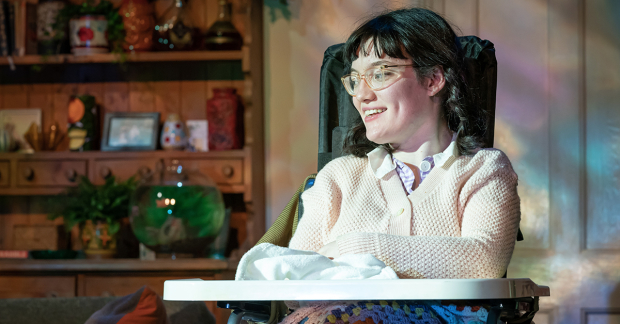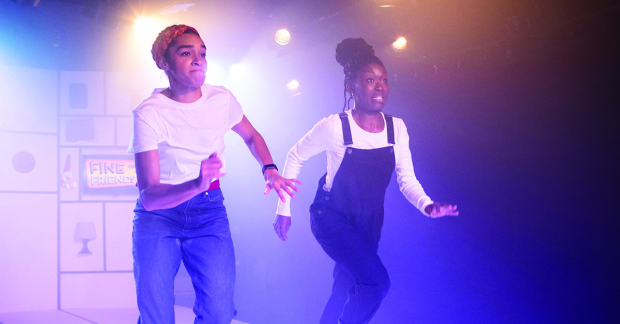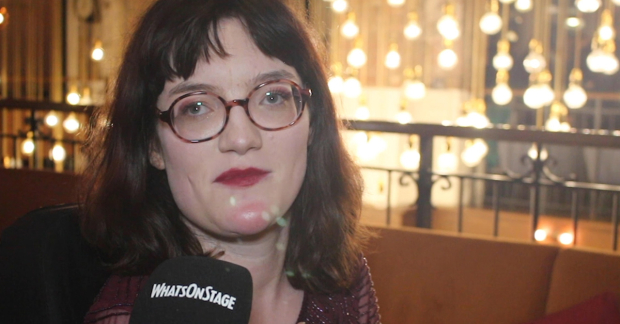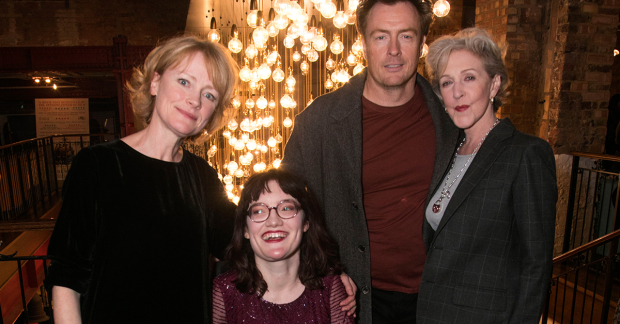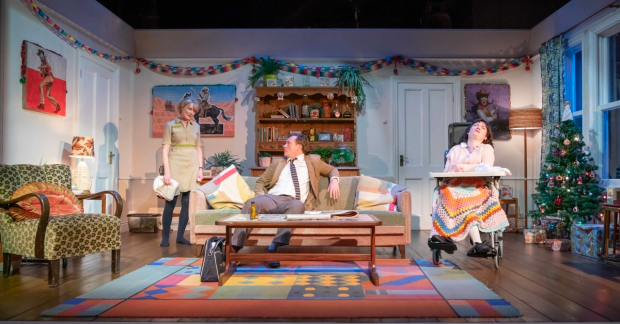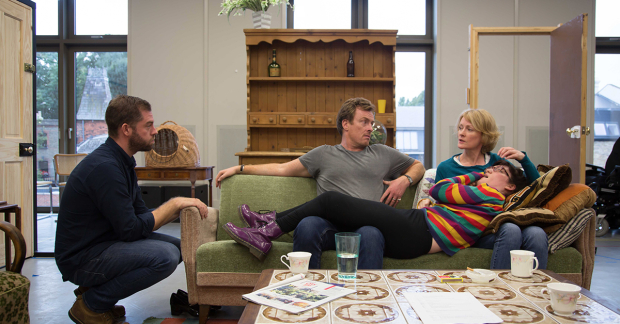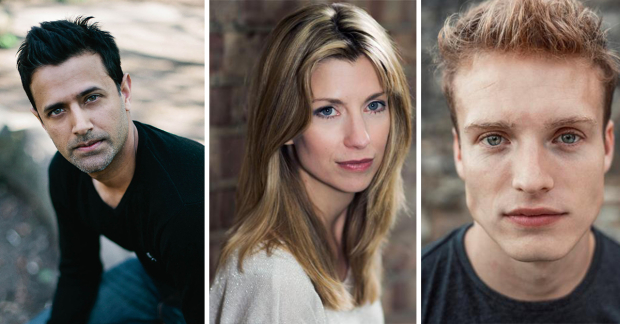Review: The Girl Who Fell (Trafalgar Studios)
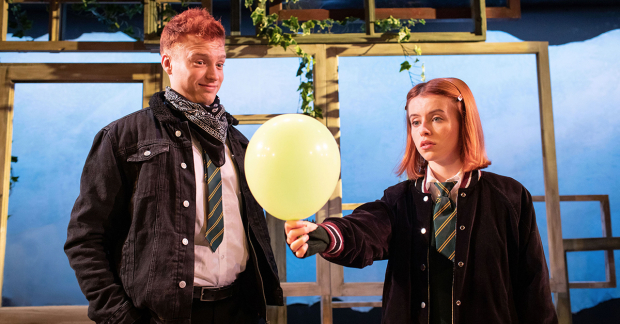
© Helen Maybanks
A 15 year-old girl is dead. She fell – jumped – and left behind a mother, a boyfriend and a best friend. None knew about the suicide beforehand and each is forever changed because of it.
But despite the morbid subject matter, Sarah Rutherford's work has a really warming feeling to it. It's totally unabashed, completely comfortable with its subject matter. It's a little off-piste, slightly unhinged and unafraid to make light of the whole situation without ever seeming insensitive.
And it's funny. It's the kind of laugh-out-loud production where the sound escapes your lips before you've truly registered what you're laughing at, a chuckle that you instantly want to take back when you realise the gravity of the conversation. An awkward laugh at a funeral, or to fill an uncomfortable silence. Rutherford's text – given the space to breathe and grow through Hannah Price's intricate direction – never judges its audience for their reactions, however ill-placed they seem to be.
The Girl Who Fell opens with Rosie Day and Will Fletcher as teenage twins Billie and Lenny, talking about death with the kind of candid honesty that only exists pre-adulthood, before social conditioning teaches us how to respond, how to behave. The first scene makes light work of a harrowing topic with the teens' earnest, grounded delivery – wide-eyed expressions and honest, genuine intrigue. Suddenly the tragedy is refreshing, in its own twisted way.
Each subsequent scene resonates with a piercing honesty, an insight into those left behind to pick up the shattered pieces of their lives. Price adds little touches, pauses between dialogue and non-verbal interactions which add more depth and complexity to the script's solid foundations. With each piece of carefully constructed dialogue comes a new psychological layer to the show, as each of the characters slowly unveils the extent that such a trauma has had on their own mental and emotional health. No goodbye note, no clues or forewarnings. Just secrecy, avoided subjects and incomplete responses.
The Girl Who Fell slowly becomes less about coping and more about questioning – how well did those closest to her really know Sam before she took her own life? Rutherford leaves these doubts gnawing away inside each of the characters, gradually threatening to overwhelm their lives. Understandably, it's the mother who is hit hardest, an initially subdued performance from Claire Goose that matures and evolves over the course of the show. But the script is at its most complex in the teenagers, a cleverly crafted series of backstories that Day and Fletcher bring to life with sensitivity and good humour. Day in particular makes for a spellbinding watch, her character seeming so unflappable and yet teeming with internal conflict.
The climax that would make this play outstanding is never quite reached, less an earth-shattering quake and more a series of moderate tremors. But Rutherford's epilogue is so poignant because of its imperfections, the final stages of grief providing a much-needed sense of closure.
There isn't a clear reason as to why the girl fell – or jumped – because there isn't a simple explanation. There's just mourning, coping and moving on. The Girl Who Fell resists the need for a perfect ending and is more powerful for it.



